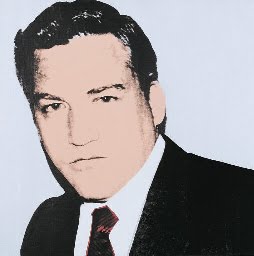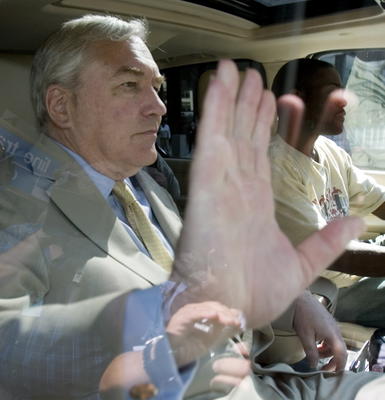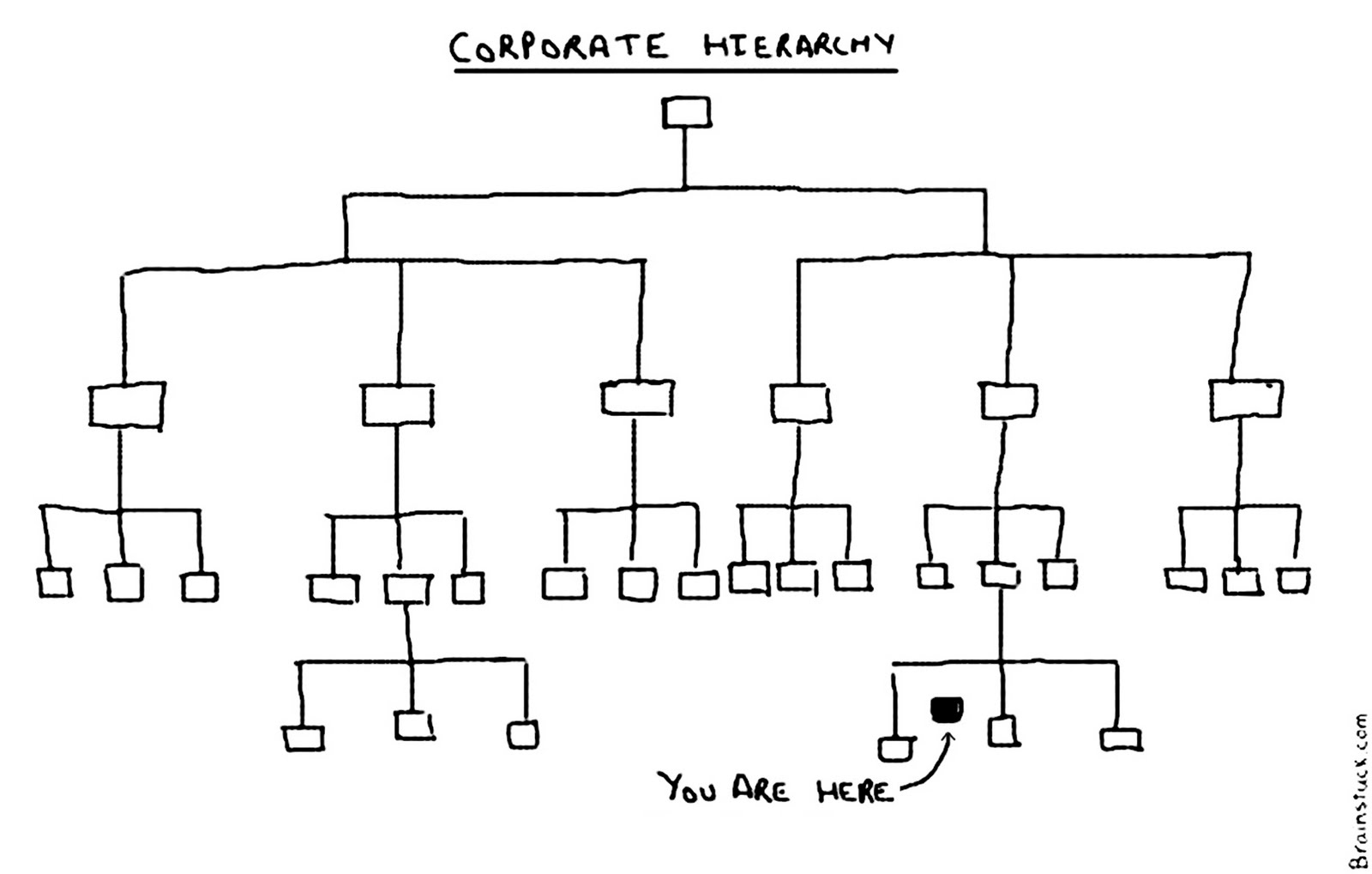INTRODUCTION
The trial and conviction of Conrad Black exemplifies the complex nature of corporate crime in the white-collar world. To understand the social problem surrounding his case, this essay will do the following. First, it will examine four articles about corporate crime. Second, it will demonstrate how conflict theory can interpret this social problem. Finally, this essay will suggest some possible preventative measures for this social problem but will conclude that there is no simple means of correcting the systemic social problem that exist in capitalist societies both in corporations and, by analogy, bureaucracies.
Four Articles on Corporate Crime
(1) In the sociological article entitled Re-Imagining Crime Prevention: Controlling Corporate Crime?, Alvesalo et al (2006) argue that there is a lack of political will at the elite level needed to prevent corporate crime in North America. The authors believe that deterring corporate crime is important for society and if there is a higher likelihood of detection then prevention is possible. Alvesalo argues that the legal justice system that seems to ignore corporate crime is not an inherent barrier to gaining justice, but must be adjusted to prosecute corporate offences more effectively. The article strongly advocates surveillance of corporate executives through government monitoring and social movements aimed at detecting corporate crime.
(2) In the criminology article entitled Sanction Threats and Appeals to Morality: Testing a Rational Choice Model of Corporate Crime, Paternoster & Simpson (1996) assess the cost/benefit analysis that a corporate executive might make before committing a corporate crime. They found that sociopaths with low moral inhibitions were most likely to commit corporate crime if the opportunity arose. The article adds that corporate criminals can be deterred if they thought legal action was possible but monitoring backroom business activity is admittedly difficult. The paper argues that appeals to morality and showing the consequences of such crimes are the best means of dealing with this social problem.
 (3) In the Canadian Broadcasting Corporation (CBC)’s news article The Rise and Fall of a Media Baron, the author describes Conrad Black as a lavish intellectual tycoon whose successes in the media business gave him public notoriety. Despite his prestige, Lord Black is undergoing criminal proceedings in the United States as a white-collar offender . The article outlines his criminal charges that include personally claiming money that should have been distributed to Hollinger shareholders, billing exotic personal vacations to his company’s account and also racketeering under the RICO Act . The victims are primarily company shareholders in this trial.
(3) In the Canadian Broadcasting Corporation (CBC)’s news article The Rise and Fall of a Media Baron, the author describes Conrad Black as a lavish intellectual tycoon whose successes in the media business gave him public notoriety. Despite his prestige, Lord Black is undergoing criminal proceedings in the United States as a white-collar offender . The article outlines his criminal charges that include personally claiming money that should have been distributed to Hollinger shareholders, billing exotic personal vacations to his company’s account and also racketeering under the RICO Act . The victims are primarily company shareholders in this trial.
(4) In the Maclean’s magazine article Laying Down His Friend For His Life, Mark Steyn central objective is to discredit the testimony of Conrad Black’s former business partner David Radler who is the centre-piece of the prosecution’s case . Steyn’s decries the U.S criminal justice system that is allowing Radler’s plea-bargain agreement which will reduce his sentence and damage Black’s defence . Mark Steyn repeatedly gives a commendable portrayal of Conrad Black as a victim of both betrayal by his close friend and the U.S. legal system which has turned against a successful entrepreneur.
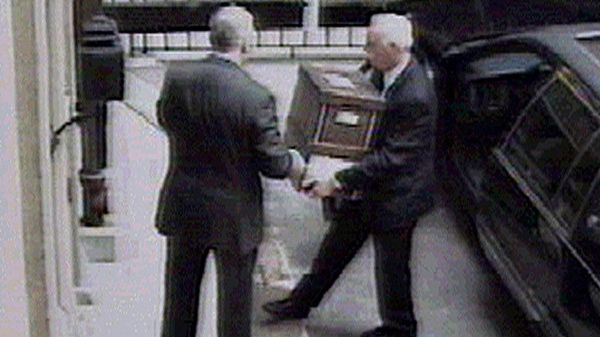
The Conflict Theory Perspective interpretation of Corporate Crime
Corporate crime can be interpreted by using the conflict theory perspective. Conflict theory sees corporate crime through the lens of economic inequality. Karl Marx’s radical critical-conflict approach states that social institutions further legitimize class-based society. In addition, class dictates the type of crime an individual will commit, hence corporate executives commit types of corporate crimes. Conflict theory points out that the economic inequalities within the capitalist society disproportionately incarcerate poor people while seemingly giving special status to criminals based on wealth, power and prestige. This occurs since capitalism will always favour the unscrupulous bourgeoisie who manipulate various social institutions to protect their personal wealth. According to Alvesalo, the elite members such as judges, business-people and some journalists do not see their bourgeois friends as criminals even if there is questionable activity at play. A conflict theory interpretation should also note that there is a legal grey area for corporate crime that may intentionally make prosecution, punishment and sentencing difficult.
Lord Black and the Conflict Theory Perspective
From the conflict theory perspective, Conrad Black is unique because the power struggle is not between the proletariat and the bourgeois but between competing members of the bourgeoisie: the shareholders (with U.S. government support) versus Black and other executives of Hollinger International. I argue, then, that Conrad Black’s case is an example of a backlash from the capitalist elite against a member of their own class. As discussed by Alvesalo, most corporate crime is hidden behind-the-scenes. However, sometimes justice for the manipulation of shareholders becomes publicly demanded . The backlash occurs because corporate criminal charges expose the abuses of the bourgeois class thereby damaging the legitimacy of the capitalist superstructure. As perpetuators of economic inequality, there is a need to protect the capitalist corporations against threats to their legitimacy. Therefore, I believe the U.S. government is primarily protecting the capitalist system by holding a blatant abuser to account. This is in order to protect the overall bourgeoisie from the threat of a mobilized proletariat. Paternoster & Simpson would point out that Conrad Black was attempting to manipulate shareholders because he could rationally deduce that the legal consequences would be limited. The conflict perspective would argue that a high profile corporate executive such as Conrad Black is being publicly humiliated to deter others from abusing the status quo and thereby perpetuating the capitalist system.
In the power relationship, corruption arises because there is no one to hold executives accountable at the top of a corporate hierarchy. The most successful businesspeople end up running organizations by strategic exploitation and using every opportunity to advance themselves. I think that this exercise likely makes them less concerned with morality and more concerned about winning in the struggle to maximize self-interest. At the same time, executive criminality is very difficult to prosecute because executives are skilled at backroom dealing which does not produce much evidence for a criminal case, as is the issue in Conrad Black’s trial.
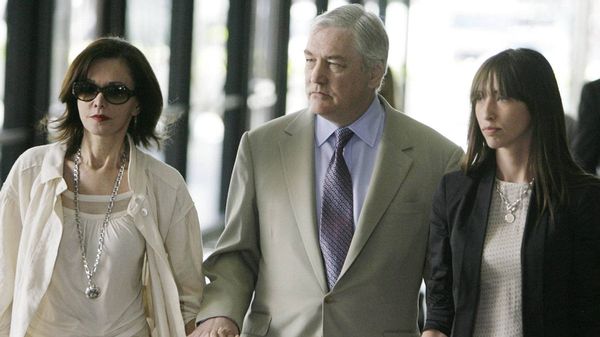
Problematic Media
Using the conflict perspective, some problematic issues with the Steyn article are noteworthy. The problem surrounds the fact that Conrad Black, until recently, controlled a massive media-empire. I believe that Mark Steyn’s pro-Conrad Black bias occurred in his article because his editor at Maclean’s magazine Ken Whyte is a former employee of the defendant. In addition, Conrad Black’s current wife Barbara Amiel writes for Maclean’s magazine and could not accept criticism of her husband in the same publication. These are two examples of the concentration of the media-ownership that leads to protection of vested interests of leading capitalists who have influential friends.
Conclusion: Social Policy to mitigate the negative consequences of the social problem
Some useful social policies may help to mitigate this social problem. I would suggest there be stronger regulatory agencies, more government intervention where rigorous/appropriate, transparency between corporate executive and shareholder and moral education of business leaders / vice versa. Black created many jobs , broke not just rules but circulation records so respect that this is complex, but here he failed to follow the rules, dude! And he got caught wanting more material stuff, maybe to satisfy his wife. Who knows. Admittedly, solving this social problem will not be easy and capital flight is a common threat against attempts to allow stricter monitoring of corporate activities. White-collar criminals have a special status in society and make it is difficult to prosecute corporate crime when and if it happens. Unfortunately, the negative consequences of this type of crime tend to be more widespread. This fact makes it imperative that something be done to curb the abuses of those in positions of power. More research is necessary in this field.
Work Cited
Alvesalo, A, Tombs, S, Virta, E & Whyte, D. Re-imagining crime prevention:
Controlling corporate crime? Crime, Law & Social Change Vol. 45: 1-25, (2006).
Paternoster, Raymond, Simpson, Sally. Sanction Threats and Appeal to Morality:
Testing a Rational Choice Model of Corporate Crime. Law & Society Review, Volume 30, Number 3 (1996).
Kendall, Diana et al. Social problems in a diverse society. Pearson Education Canada,
Toronto, Canada, (2007).
Steyn, Mark. Laying Down His Friend For His Life. Maclean’s: Volume 120, Number
20, May 28th, 2007.
http://www.cbc.ca/news/background/black_conrad/rise-fall.html


